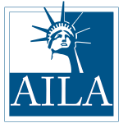IMMIGRATION LAWYER FOR BUSINESS VISAS, CITIZENSHIP, GREEN CARDS & FAMILY IMMIGRATION
Serving Seattle, Bellevue, Kirkland & Beyond
You have more than dreams; you have goals and objectives and the intent to achieve them. You need the best visa status to maximize success for your organization, your employees, yourself, and your family. Trust your goals to our 30 years of experience dedicated 100% to business and family-based immigration law.
As an immigration lawyer and citizenship attorney, Barbara Marcouiller helps clients throughout the pathway to citizenship. We are on your team.
As an immigration law firm, we serve clients not only from the greater Seattle metropolitan area, but also those outside of the U.S., often including those seeking to enter the United States for work (including those seeking an investment visa).
Business Visas
Business visas can be complex. In the U.S., there are pathways to temporary work visas through non-immigrant visas, as well as employment-based visas, which are evidenced by a green card. As a business immigration attorney, Barbara Marcouiller assists employers and employees with business visas.
I-9 Compliance
Every U.S. employer is required properly to complete and maintain Form I-9 verification of employment for every employee, even U.S. citizens. Penalties for non-compliance can be painful, including fines and even potentially prison. Bellevue and Seattle I-9 attorney Barbara Marcouiller can help you establish a clean easy-to-maintain system, train your HR or onboarding staff, and represent you during a government audit.
Barbara Marcouiller is an attorney with Davidson Kilpatric & Krislock PLLC, an established law firm for over 90 years. Barbara also maintains her strategic partnership with PRK Livengood PLLC for their clients’ immigration and I-9 needs.
For more information about the firm’s immigration and I-9 practice or to learn about partnering with us, see the information below or email us.
I-9 Compliance & Audits
Helping employers maintain I-9 compliance, and representing them in I-9 audits.
Employment-Based Non-Immigrant (Temporary) Visas
Assisting employers and employees to secure the right status based upon the job and the employee’s credentials.
Employment-Based Paths to Permanent Residence
Helping clients understand the best path to permanent residence for them.
Lawful Permanent Residence (the “Green Card”)
Helping clients secure permanent residency (a “green card”) which allows them to live and work in the U.S.
Family-Based Immigration Law
Explaining what permanent residency is and how it can be lost.
How Can Citizenship be Acquired?
Apart from naturalization, different routes can result in citizenship from birth, even for someone born abroad, or in “automatic” citizenship.
Immigration News
USICS Revives 540-Day Automatic Extension of EADs
USCIS announces a temporary final rule increasing the automatic extension period of certain employment authorization documents (EADs) from 180 days to 540 days! This measure restores a pandemic-era flexibility, and helps to protect the continuity of America’s workforce.
Read More >>Time to Apply for U.S. Citizenship!
If you are a lawful permanent resident (green card holder) who is eligible to naturalize, and you want to become a U.S. citizen, now is the time to do it. It’s an election year, and you could be eligible to vote if you naturalize.
Read More >>ASSOCIATIONS



Contact
"*" indicates required fields
